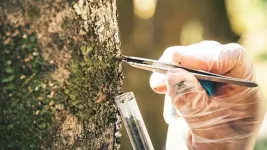This large study analysed outcomes for nearly 25,000 children born in Denmark and The Netherlands, between 1997 and 2017. Results show that children who had invasive GBS infection are twice as likely to have neurodevelopmental impairments (NDI) and to require special educational support than children who did not have GBS disease.
Effects later in life are significant - about one in 20 survivors will experience some form of neurodevelopmental disability. The authors note that the majority of GBS infection survivors will not have long-term effects.
This study was conducted through a partnership of the London School of Hygiene & Tropical Medicine (LSHTM), Aarhus University (Denmark), Amsterdam UMC (Netherlands) and the Dutch National Institute for Public Health and the Environment.
Invasive GBS infection is increasingly recognised as a leading cause of newborn illness worldwide, with ~300,000 cases estimated annually. Important knowledge gaps have been highlighted especially regarding the long-term outcomes of patients who survive the acute disease during this critical period of life. Previous small studies have followed babies after GBS meningitis to a median age of about two years. No study has examined outcomes after GBS sepsis.
Dr. Bronner Gonçalves, from LSHTM and a lead author on the study, said: "This is the largest study quantifying long-term effects of GBS infection for babies who survive, with follow-up to the second decade. We add to findings on long-term effects after meningitis, showing subtler cognitive outcomes at older ages. These new findings show an important, previously unquantified risk after GBS sepsis. Our results suggest that continued medical follow-up is key and could lead to earlier identification of problems, and more support to families."
Children in the study were identified using national administrative, medical, and laboratory databases. 2,258 babies were diagnosed as having had GBS infection, including meningitis and sepsis, within the first three months of life. For every GBS case, ten children who did not have the infection were matched on age, sex and other characteristics influencing long-term outcomes.
Children were followed up for an average of fourteen years in Denmark and nine years in the Netherlands, to analyse risks of death and of NDI (e.g. motor, cognitive, and socio-behavioural, and special educational needs). The findings are striking and reinforce the severity of this condition with a 5% mortality risk for babies dying from invasive GBS disease in high-income settings, although the risk is much higher in low and middle income countries. Compellingly, there are also serious consequences for some of the children who survive.
In Denmark, history of GBS infection in the first three months of life was associated with 1.8-fold increase in risk of NDI: 45 of the 969 children who survived the acute phase of the disease had moderate or severe NDI, such as motor impairment, by the age of 10. The risk was even higher in the Netherlands, where 36 of the 252 children with a history of invasive GBS disease needed special educational support by age 10, a more than two-fold risk.
Dr. Erzsébet Horváth-Puhó, an associate professor at Aarhus University, Denmark and a lead author, said: "Our study suggests that babies who recover from invasive GBS disease have increased risks of cognitive, motor, and behavioural impairments, which can impact their lives and their families. The long term effects on children was also evidenced by higher rates of hospitalisation for those who survived this infection. In Denmark, a nearly two-fold increase in outpatient visits was observed and a 1.3 higher increase for hospital admissions compared to children who did not develop GBS disease."
Currently, the only available GBS disease prevention strategy is to provide antibiotic prophylaxis to women in labour whose baby is at increased risk of developing GBS disease. However, this strategy is not sufficient even in these two European countries and currently not adopted in settings with limited resources.
Professor Merijn Bijlsma, a paediatrician at Amsterdam University and a lead author, said: "Even with the best medical care, such as available for Dutch and Danish babies, survivors of GBS meningitis and also sepsis may be affected for life. The best way to protect these children is prevention of invasive GBS disease. We need better ways to identify at birth who is at risk, so prevention including with intrapartum antibiotics becomes more effective."
Professor Joy Lawn, from LSHTM and senior author and PI, said: "Every year hundreds of thousands of babies have GBS sepsis or meningitis, with a high mortality risk. Families in all continents are affected. Our study shows that GBS also affects educational potential for survivors. The global burden of disease is more than has previously been estimated, underlining the urgent need for prevention. Despite 30 years of research, maternal GBS vaccines currently are not yet available - a contrast to more than 100 COVID-19 vaccines in process within one year. We can and must deliver more for families affected by GBS all over the world."
Charlotte Cleary's daughter Aimee developed early-onset group B Strep meningitis and sepsis shortly after birth in July 2011. She spent three weeks very sick in hospital. and has recovered with brain damage and physical disabilities. Aimee was diagnosed with quadriplegic spastic cerebral palsy and pseudobulbar palsy, along with learning difficulties and sensory issues. Put simply, she can't sit, stand, walk, talk and is mostly tube-fed. Charlotte said: "Every day is a challenge and it's hard to look after a disabled child, although she does bring me so much joy. I do however have anger inside of me that GBS is so easy to prevent, so why are they not doing more to routinely test it in pregnancy? That is my question as Aimee's disability would most likely be non-existent."
The authors acknowledge study limitations including differences in the identification of children with GBS infection cases selection between the two countries. Importantly, these results from Denmark and the Netherlands reflect two high income European countries, and results in low and middle income countries may differ, hence data are needed from these contexts. Further research is needed as to why different children are affected differently. We know preterm birth is an important linked risk factor and more studies are needed to explore this association.
INFORMATION:
This study was funded by the Bill & Melinda Gates Foundation to address a key global data gap regarding GBS, and contribute vital information for the World Health Organization's Report on GBS prevention, linked to the new Global Roadmap to Defeat Meningitis. The Dutch team was also supported by the Stichting Remmert Adriaan Laan Fonds.
Notes to Editors:
To request a copy of the embargoed paper or to request interviews with authors please email press@lshtm.ac.uk.
For parent spokespersons please contact oliver.plumb@gbss.org.uk (0330 120 0798).
For Danish version of the embargo paper please contact hhh@au.dk (+ 45 22929897)
For Dutch version please contact Jan Spee, j.spee@amsterdamumc.nl (+31 6 53943537).
Images available with permissions.
Publication details:
Erzsébet Horváth-Puhó*, Merel N van Kassel*, Bronner P Gonçalves*, Brechje de Gier, Simon R Procter, Proma Paul, Arie van der Ende, Kirstine K Søgaard, Susan J M Hahné, Jaya Chandna, Stephanie J Schrag, Diederik van de Beek, Mark Jit†, Henrik T Sørensen†, Merijn W Bijlsma†, Joy E Lawn†. Mortality, neurodevelopmental impairments, and economic outcomes after invasive group B streptococcal disease in early infancy in Denmark and the Netherlands: a national matched cohort study. Lancet Child and Adolescent Health. DOI:10.1016/S2352-4642(21)00022-5
Partners
The London School of Hygiene & Tropical Medicine (LSHTM) is a world-leading centre for research, postgraduate studies and continuing education in public and global health. LSHTM has a strong international presence with over 3,000 staff and 4,000 students working in the UK and countries around the world, and an annual research income of £180 million. LSHTM is one of the highest-rated research institutions in the UK, is partnered with two MRC University Units in The Gambia and Uganda, and was named University of the Year in the Times Higher Education Awards 2016. Our mission is to improve health and health equity in the UK and worldwide; working in partnership to achieve excellence in public and global health research, education and translation of knowledge into policy and practice.
http://www.lshtm.ac.uk
Follow @LSHTM on Twitter/Listen to LSHTM Viral Podcast
Aarhus University is one of Denmark's top research intensive universities. The university was founded in 1928 and today it has several world class research fields. It has a long tradition of partnerships with some of the world's best research institutions and university networks. Aarhus University has a strong commitment to the development of society that is realised through its collaboration with government agencies and institutions and the business community. Aarhus University's goal is to contribute towards solving the complex global challenges facing the world. The university therefore strives to combine the high level of academic standards of its researchers with collaboration across disciplinary boundaries to combine research in new ways and solve challenges in close contact with the world around us. http://www.kea.au.dk
Amsterdam UMC Since June 2018, AMC and VUmc have joined forces. More than 16,000 professionals work at Amsterdam UMC on good and accessible healthcare. For now, and for generations to come. Together we work towards a future in which we prevent diseases and make the best treatments available to all patients. To this end, we develop new diagnostics and treatment methods, in collaboration with professionals from other renowned national and international institutions. Every year we treat more than 350,000 patients at both our locations - AMC and VUmc. The emphasis is on complex patient care and the highly specialized treatment of rare disorders. In Amsterdam UMC we train thousands of young people to become doctors, specialists or nurses. Our researchers are united in eight research institutes so that we can give shape to our ambition to conduct internationally leading research. In Amsterdam UMC, AMC and VUmc work together on the best academic patient care, scientific research and education & training.


